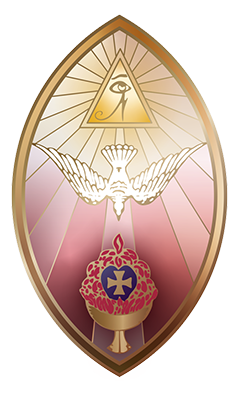By Frater O.I.P.
The Australian Grand Lodge recently acquired two editions of the English literary magazine, The English Review, with both featuring contributions by Aleister Crowley. Our Grand Master Shiva X° has donated the items to our archives.
One includes Crowley’s “Art in America”, which was described by Tobias Churton to have, ‘surged through the Atlantic like a racing clipper to stir immediate foam on t’other side of the pond.’ This showed Crowley’s familiarity with works by American artists; not a detailed critique of individual works of art, but ‘a broad analysis of the way artistic culture functioned socially in America, and how it was bound up with the psychology of the developing country.’ (Tobian Churton, Aleister Crowley in America). Robert Schauffler (American writer, cellist, athlete, poet, and war hero) wrote of “Art in America” that, ‘His [Crowley’s] article is most readable. It bristles with wit and wisdom – and the wildest unsportsmanship.’
The other edition publishes “The City of God”, in which Crowley believed, ‘I expressed the soul of Moscow in a poem.’ In the preface to an edition published by the O.T.O. in 1943, and printed by The Chiswick Press, he states powerfully that, ‘Poetry is the geyser of the Unconscious. Poetry is the intelligible musical expression of the Real whose mirror is the phenomenal Universe. Poetry is the Hermes to lead the “soul” Eurydice from the murk of illusion to the light of Truth…’
The English Review was published monthly between 1908 and 1937 as a vehicle for original creative work. Cowley was amongst notable company in the English Review, who also published works by the likes of H.G. Wells, George Bernard Shaw, Herman Hesse and Aldous Huxley.
The publication courted controversy by challenging the sexual mores of the day, and provided a vehicle for the likes of Irish-American, Thomas Hardy, whose autobiography (My Life and Loves), gave detailed accounts of his sexual encounters, and was banned in the US and Brittan. The New York Supreme Court found the book ‘unquestionably obscure, lewd, lascivious and indecent.’ One story of the genesis of The English Review was that it was established because there was nowhere to publish Hardy’s “A Sunday Morning Tragedy”; a poem about a mother and daughter, after the daughter falls pregnant and is abandoned by her lover. The daughter is accidentally killed in an attempt to terminate the pregnancy:
‘There she lay — silent, breathless, dead,
Stone dead she lay — wronged, sinless she! —
Ghost-white the cheeks once rosy-red:
Death had took her. Death took not me.’
It was this environment of “moral outrage” that would see Crowley later vilified in the “yellow press”, who thrived on scandal-mongering, exaggeration and sensationalism (which seems all too familiar today), and the attempt to counter this through the publication of Australian P.R. “Inky” Stephenson’s “The Legend of Aleister Crowley” in 1930. This would have been with the memory of the treatment of Oscar Wilde in 1895, and his prosecution to the full extent of the law despite the lack of convincing evidence against him.
